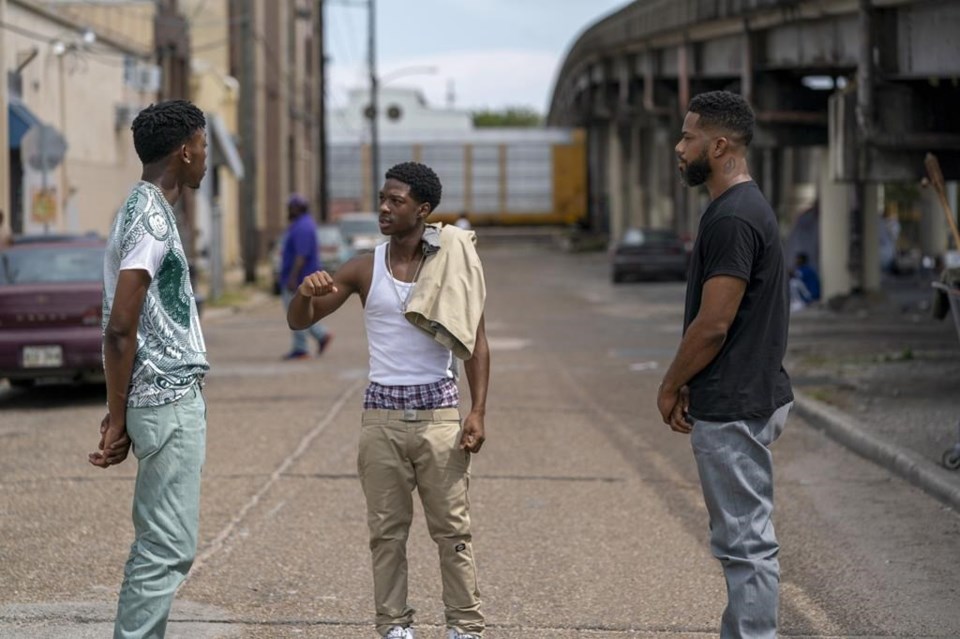TORONTO — Lamar Johnson grew up in the Toronto suburb of Scarborough, Ont., down the road from a couple of other fellow screen stars who are also making waves in Hollywood.
Johnson says he's known actor-brothers Stephan James and Shamier Anderson since they were young, and was even convinced by the latter to study drama and musical theatre at Wexford Collegiate School for the Arts in the city's east end.
Anderson persuading Johnson to shift from basketball "hoop dreams" to Hollywood dreams changed his life, he says.
And so it seems fitting that the under-30 trio are celebrating career milestones within days of each other.
Just a week and a half after Anderson and James launched The Black Academy to celebrate Black talent across Canada, Johnson will make his debut in the hit new legal drama "Your Honor," which screens Sundays on Showtime and Crave.
"I've known Shamier and Stephan since I was in PJs," Johnson said this week in an interview, noting he grew up a few intersections away from the two, along Sheppard Avenue.
"All of our ambition lies in the same place: we know that it's bigger than us. We know that in order for us to truly create impact, we have to go the distance. So we understand that we don't create ceilings around us, there's no bubble. The sky is truly the limit for us."
The 10-episode "Your Honor" premiered last week and stars Bryan Cranston as a respected New Orleans judge and widower who tries to cover up his teenage son's involvement in a hit-and-run accident.
Johnson plays a key role as Kofi Jones, a pawn of sorts in the high-stakes cat-and-mouse game that ensues between the judge and the head of a powerful crime family head, played by Michael Stuhlbarg.
"This is the most vulnerable that I've been on camera really ever," said Johnson, whose previous credits include the films "The Hate U Give" and HBO's "Native Son."
"Stepping into it, it was a little nerve-racking, because I haven't had a lot of personal experiences that mirror what Kofi goes through in his arc. So it was more so about me doing my homework."
Johnson recalled one particularly tough day on set in New Orleans, shooting a harrowing scene in a car.
"I remember doing that scene and completely blacking out," he said.
"It was the furthest that I've had to dive and dig in as an actor."
Johnson's character lives in the city's Lower Ninth Ward, which was the poorest and hardest hit during Hurricane Katrina. He makes sacrifices in order to ensure the safety of his family, often showing remarkable strength despite his situation, said the actor.
The juxtaposition of the lives of those in that community with the power and privilege of Cranston's character speaks to issues of class, race and corruption.
"I think that the topics on the show are very timely, and it's just something that is just very poignant," Johnson said, noting showrunner Peter Moffat didn't shy away from the heavier themes.
"In New Orleans, the judicial system is quite corrupt," he added. "They call it a conveyor belt system, where there are Black people that are just being pumped through the system constantly. And I think the show highlights that, too."
Johnson was living in Los Angeles for work until the pandemic hit. He's now back on home soil in Whitby, Ont., with a screen project he's "really excited about" on the horizon. He's also a renaissance man of sorts, creating his own production company and his own jewelry line, with ambitions to also write a book and make furniture and other household items.
For himself, Anderson and James, "it's really just the beginning," he said, noting the three hope to collaborate "when the time is right."
"We have a lot of things that we want to do and say and use as expressions," Johnson said. "So I think what's happening now are just little seeds that are being planted to get to a place where we can truly harvest."
This report by The Canadian Press was first published Dec. 11, 2020.
Victoria Ahearn, The Canadian Press


